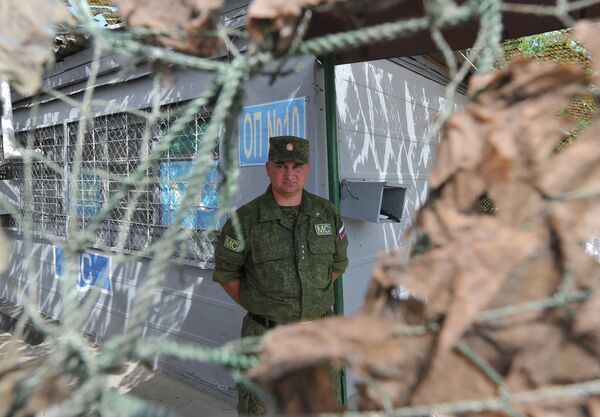Updated 12:07 p.m. Moscow time
MOSCOW, October 16 (RIA Novosti) – Attempts to reform the current peacekeeping mission in the unrecognized Moldovan republic of Transnistria will not contribute to settling the conflict in the region, the Russian Foreign Ministry said Thursday.
“It is evident that political forces, who back a transformation of the existing peacekeeping mission, aim not at reaching guarantees of peace and stability in the Dniester region, but at having the Russian peacekeeping contingent removed from the zone of conflict by all costs,” the ministry said in a statement.
“We think that the potential of the current peacekeeping mission is far from being exhausted. The operation in Transnistria is unique as no deaths of peacekeepers or any serious clashes were registered during its 22-year history,” the statement reads.
The Foreign Ministry drew attention to the fact that this topic has been raised during a round table held recently at the European Policy Center in Brussels and entitled "The reform of the peacekeeping mission in Transnistria." The round table was attended by representatives of various political forces and movements.
"Some political forces in Europe are still obsessed with the idea of transforming the peacekeeping operation in Transnistria into some peace guarantee mission," the Russian Foreign Ministry emphasized.
Transnistria wanted to secede from Moldova before the collapse of the Soviet Union, fearing that Moldova could join Romania. In 1990, the breakaway republic of Transnistria, with a predominantly Russian and Ukrainian population, declared its independence from Moldova in a move, which led to armed hostilities in 1992. Moldova tried to resolve the conflict with the use of military force but lost all control and influence over the region.
After the end of violence, the presidents of Russia and Moldova in the presence of Transnistria’s representatives signed an agreement on the Principles of a Peaceful Settlement of the Armed Conflict in the Transnistrian Region of the Republic of Moldova. The deal paved the way for the establishment of a tripartite peacekeeping force.
Tiraspol is now seeking international recognition, while Moldova offers Transnistria autonomy within a unitary state.


